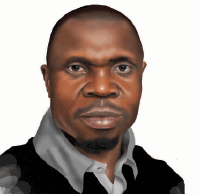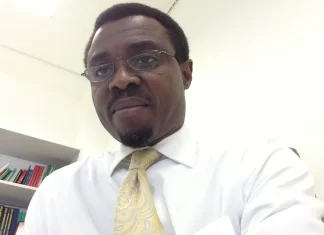For those who have followed and clearly understand the historical obligations of the Senate in any democracy, what happened on Tuesday, September 16, when the Upper Legislative Chamber resumed from its annual vacation, was not surprising.
Based on a motion by the Senate Leader, Victor Ndoma-Egba (SAN), Senate President, David Mark, unambiguously declared that it was time for a total war on Boko Haram because the religious sect has posed a serious threat to national sovereignty and territorial integrity of Nigeria.
Bluntly, he said: “When Boko Haram moved from kidnapping, killing people and destruction of property to the occupation of parts of Nigerian territory, it had declared a total war on Nigeria.
“There is no difference between what Boko Haram is doing against Nigeria, and what an enemy country waging war against Nigeria would do.
“The issue is beyond that of mere internal security. It is about how we execute the war (because) Boko Haram has captured most parts of the country we represent and has created a caliphate…. That is why we must pay an urgent attention to the matter.
“This war has certainly come to our doorsteps. As senators of the federal republic, destiny has entrusted us to be at the helm of affairs today. We must all rise to the current challenge.”
Mark demanded a clear, concise and unequivocal mission statement on how to defeat Boko Haram. He said the financiers and collaborators of the terrorist group must be fished out and brought to book.
Not a few Nigerians would agree with him. He spoke for the people. As a retired General who once dared the late vicious dictator, Sani Abacha, Mark is known for tough, straight talks.
One aspect of his patriotic outburst, that has already been misconstrued and painted in negative colours by those who place political advantage beyond the security of Nigeria, has to do with the 2015 elections.
Mark had said: “There is no question of election; it is not even on the table now. We are in a state of war. All of us cannot carry guns to fight, but we all have roles to play in bringing the situation to an end.”
A lot of political jingoists believe he was talking about postponement of elections which they say would mean creating what they call a third term for President Goodluck Jonathan (from the back door). The ways of politicians will forever remain unclear.
I believe Mark’s position and that of the Senate is that since there would be no country to govern except the war against terror is won, focus must shift from election to securing the territorial integrity of Nigeria first.
Assuming Mark actually meant that certain legal provisions would be invoked to put 2015 elections on hold because of the prevailing atmosphere of war and insecurity, again, that would be both constitutional and historical.
All the same, the Senate has spoken because it has the ultimate responsibility of stabilising the nation. That role is both statutory and factual. It is a role that must be played to the fullest.
The Senate has an unquestionable documented importance that has made it enjoy what Lewis Gould calls a tone of reverence, which has characterised most of the accounts of the Senate by both scholars and journalists in developed democracies.
The importance of the Senate in deciding such issues have been tested in other climes and proven. As late as March 2, 1805, the great Aaron Burr, United States vice president under Thomas Jefferson, in his farewell speech to the Senate, made reference to this important role.
He described the Senate as “a sanctuary; a citadel of law, of order, and of liberty; and it is here – it is here, in this exalted refuge; here, if anywhere, will resistance be made to the storms of political phrensy (frenzy) and the silent arts of corruption; and if the constitution be destined ever to perish by the sacrilegious hands of the demagogue or the usurper, which God avert, its expiring agonies will be witnessed on this floor.”
Burr’s position was explained 200 years later by Robert Byrd, one of the longest, if not really the longest, serving senators in American history to mean that the Senate possesses the independence, impartiality, fairness and courage to exercise power when it is most expedient.
Or to paraphrase the perception of Alexander Hamilton, where else in Nigeria could have been found a body sufficiently dignified, with undisguised independence to exercise the might such as the Senate has done?
Which other body would feel and demonstrate the confidence to speak out “unawed and uninfluenced” with the necessary impartiality, about the need for patriotic sentiments to replace political ambitions?
The Senate has exercised its rights and powers. It is left for Jonathan to add a bite to the bark. The president, like the eagle, must ride in the wave of that senatorial patriotic zeal and unleash harm on Boko Haram.
He has an open cheque, signed and delivered. Any further waste of time in carrying out the mission would mean ceding more territories to illegal occupants. That must not be allowed.
This matter is not subject to analysis by another presidential committee. Jonathan must go after Boko Haram now in the same way he has gone after Ebola.
The arms must be bought. Ammunition must be assembled. Our soldiers must be armed. Please call a war assembly; and free Nigeria from the grips of the terrorists. History beckons!













